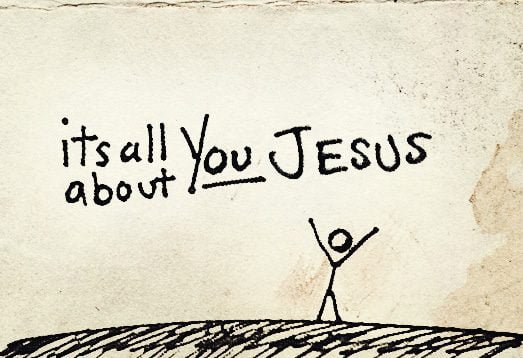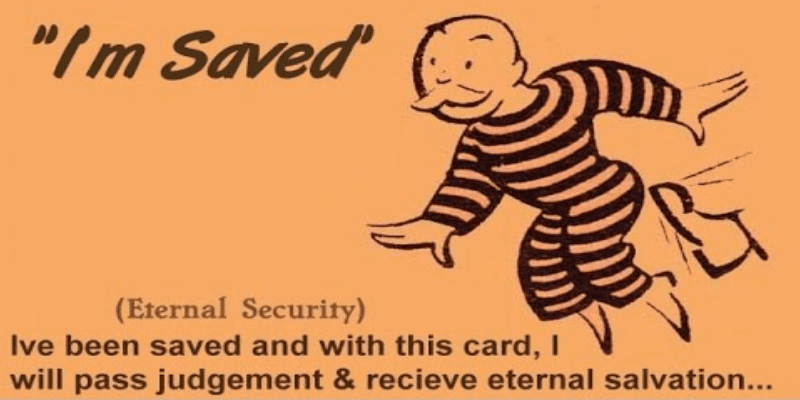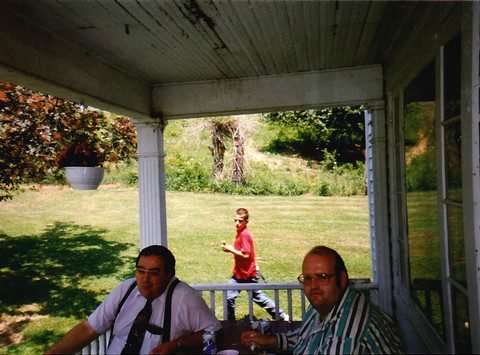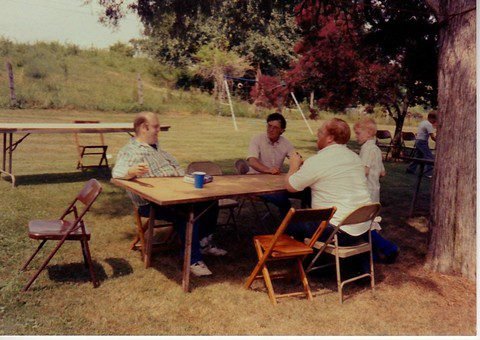
According to many Evangelicals, getting “saved” is better than any experience humans could possibly have. Is this really true? Or is it, perhaps, essential for Evangelicals to convince themselves of this in order to justify claims that Jesus is the best friend, spouse, and lover anyone could ever have? Evangelicals are convinced — outwardly anyway — that their Jesus is the most awesome dude that ever walked on planet Earth; and even now from his Father’s third heaven, he continues to show that he is the best-God-ever. According to those who are saved and sanctified by the mighty blood of Jesus, their Savior, Lord, King, and Vending Machine Operator is da bomb. No matter how good, kind, and loving someone might be, no one is a match for J-E-S-U-S. Jesus H. Christ is the sum and end of everything. If Jesus was in the running for Man of the Year, he would win every year. No man, woman, or deity can compare to Jesus. Or so Evangelicals say, anyway.
What’s odd here is the fact that not one Evangelical has EVER seen Jesus. Two thousand years ago, Jesus was nailed to a Roman cross and crucified. While Jesus purportedly made a surprising return to life after being dead for three days, he disappeared a short time later, never to be seen again. Evangelicals allege that Jesus is now sitting on a throne in Heaven, busily hearing and answering their prayers; but they have no evidence outside of the Bible for this claim. Imagine a friend telling you that her spouse/boyfriend is an awesome person; that he is quite the lover; that no one in the entire world is as good as he is. Yet, when you ask, I would sure love to meet this hunka burning love of yours, she replies, You can’t. He’s invisible. What would your next thought be? That’s a rhetorical question, of course. Rational people would encourage their friend to seek out professional psychiatric help. Yet, because loving the invisible Jesus is a religious belief, we are expected to, without judgment, smile and say, that’s nice.
Most Evangelicals enter into a saving relationship with Jesus one of two ways: either they grow up in the church or they have a crisis in their life and someone tells them, Jesus is the cure for what ails you! The latter tend to have powerful emotional experiences that they believe is Jesus delivering them from their crisis (sins). Sunday after Sunday, Evangelical preachers present Jesus as the elixir for the soul. Never mind the fact that humans don’t have souls. Most people believe they do, and that’s what makes them perfect targets for preachers promising invisible fixes for their invisible, sin-blackened souls.
Once people are convinced that Jesus has awesomely saved them from their sins, it is not much of a stretch to believe that their conversion experience is the best thing that ever happened. And people who have been conditioned this way go through life believing that nothing will ever measure up to that moment they prayed the sinner’s prayer and Jesus, by and through the power of the Holy Spirit, saved them. Making love, watching your first child be born, holding your first grandchild in your arms, and countless other awesome emotional experiences we humans have — none of them measures up to mouthing a prayer at a Baptist church altar or praying to the TV at the end of a Billy Graham Crusade.
Sunday after Sunday, the “Jesus is Awesome” trope is preached, sung, and reinforced. Is it any wonder, then, that many Evangelicals truly believe that getting saved is better than any other experience they could have? Even if some Evangelicals believe otherwise, they have to pretend that the three minutes of sex they had with Jesus is the best fuck ever. This, of course, leads to a paucity of experience; a life where no experience measures up the moment they were saved.
Unbelievers know, however, that life offers us all sorts of experiences — good, bad, and indifferent. And some of these experiences rise above the normality of life and make our Top Ten Experiences List. A few years ago, Polly and I attended a Darius Rucker concert in Fort Wayne. We had never been to a country concert, so we didn’t know what to expect. Boy, were we in for the time of our lives! There was a buzz in the arena from the start. When Rucker hit the stage and started singing, we found his performance to be every bit as powerful as anything we had ever experienced in church. And believe me, we had experienced the power and presence of the mythical Holy Ghost many times. Yet, here was a heathen — by Evangelical standards — bringing down the Shekinah Glory (the glorious presence of God) as he sang. For two hours, Polly and I, along with thousands of other people, were emotionally raptured away. It was an experience neither of us will ever forget.
I could spend the next hour detailing the salvation-level experiences I have had in my life; the difference being that these experiences are rooted in reality, not myth. As a retired photographer, I have witnessed and photographed moments in time that were breathtaking; every bit as awesome as walking the sawdust trail and getting saved. It’s too bad for Evangelicals that every experience in their lives post-salvation must be relegated to an inferior status. To do otherwise is to worship a false God. Anything put before the jealous Evangelical God is considered idolatry. Jesus alone deserves all the praise, honor, and glory. Yes, Evangelicals have all sorts of awesome experiences in their lives, but the praise, honor, and glory for experiencing them must always be given to Jesus. Life = Jesus. Or so Evangelicals say, anyway.
Many of us have likely heard an Evangelical preacher say, the most important decision you will ever make in your life is getting saved! Ponder that thought for a moment. Was the salvation experience I had at the altar of Trinity Baptist Church in Findlay, Ohio on a fall night in 1972 of such a nature that no other decision in life would be as important? Fifty-one years have passed since I asked Jesus to save me from my sin. I can say that, while getting saved was certainly transformative, I have made countless decisions and had numerous experiences that were every bit as awesome as that moment in 1972.
As a non-Christian, I don’t have to measure life’s experiences by a momentary episode in time. My wife and I have made love countless times over the past forty-five years. Sometimes the sex was okay; other times it was good; and sometimes it was bed-frame-breaking, chandelier-rattling awesome. Imagine if I had to say that every sexual experience was not as good as the first time. While it was certainly thrilling to have sex for the first time, I have definitely experienced lovemaking that surpasses that first 100-meter dash. Awesome, but quickly over. And that’s the point I want to make to Evangelicals. Don’t make your salvation experience the end-all. Don’t believe what your preachers are telling you about life. If you are blessed with long life, you will have many wonderful experiences, experiences that are every bit as mind-blowing as Jesus. You will never feel this, however, as long as Jesus is lurking in the shadows. Don’t let Elwood P. Dowd’s pooka named Harvey get in the way of you experiencing all that life has to offer.
Bruce Gerencser, 68, lives in rural Northwest Ohio with his wife of 47 years. He and his wife have six grown children and sixteen grandchildren. Bruce pastored Evangelical churches for twenty-five years in Ohio, Texas, and Michigan. Bruce left the ministry in 2005, and in 2008 he left Christianity. Bruce is now a humanist and an atheist.
Your comments are welcome and appreciated. All first-time comments are moderated. Please read the commenting rules before commenting.
You can email Bruce via the Contact Form.











